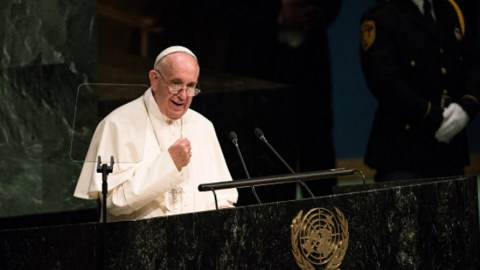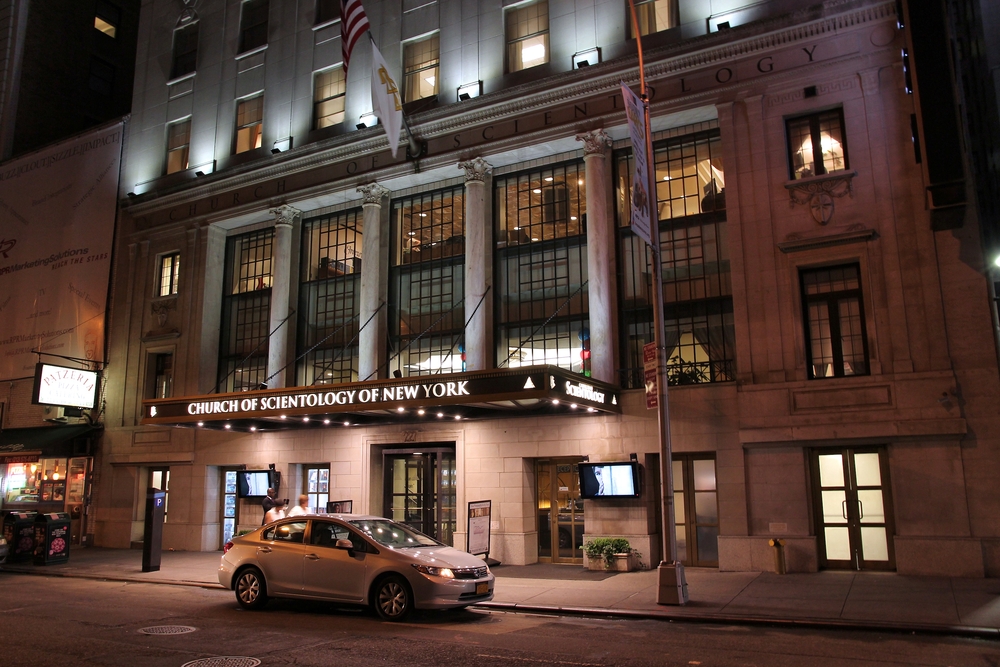We Need a United Nations of World Religions

During Pope Francis’ 2015 North American Pope-a-palooza tour he gave a speech in front of the United Nations general assembly. Francis pleaded to the room of diplomats in favor of stronger international commitments to peace, environmental stewardship, and social/economic justice.
Basically he asked the assembly to more or less do its job.
The United Nations gets a bad rap for being both dysfunctional and politically impotent — both fairly legitimate gripes. Yet despite its many faults, the organization has contributed to an unprecedented geopolitical state of relative peace and prosperity. In short: Globalization made it so the social and economic fates of the world’s major powers were tied together. The U.N. and similar international organizations have played a key role in maintaining that status quo. They’re like duct tape holding things together; it’s not perfect and it’s not pretty, but it’ll do.
“In [Shimon] Peres’ eyes, Pope Francis would head up this ‘UN for religions’ because he is universally respected and could spearhead efforts to broker peace in the Middle East.”
If such an alliance can be used to unite independent states, could a similar model work for world religions? This was an idea proposed last year by former Israeli president Shimon Peres. He suggested that an organization called “the United Religions” could bring together leaders from various worldwide religions with the goal of promoting interfaith peace and understanding. In Peres’ eyes, Pope Francis himself would head up this “UN for religions” because he is universally respected and could spearhead efforts to broker peace in the Middle East. Peres even pitched the idea to the pontiff when the two men met last September.
Anders Fogh Rasmussen, former prime minister of Denmark and former secretary general of NATO, discusses how climate change is expected to shift geopolitical priorities — particularly in the arctic region.





